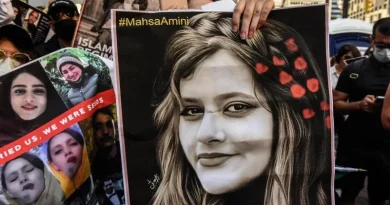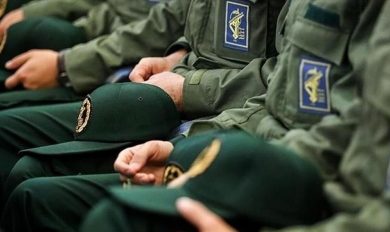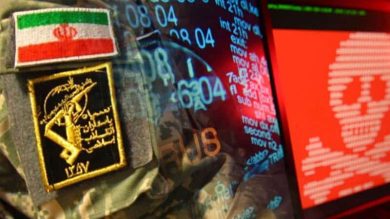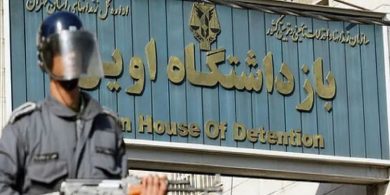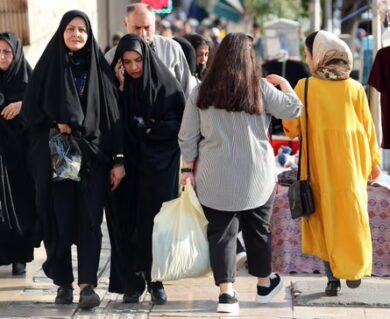The Islamic Revolutionary Guard Corps (IRGC) has evolved into one of the most influential and controversial entities in Iran, wielding extensive power domestically and projecting influence across the Middle East and beyond. Founded in the aftermath of the 1979 Islamic Revolution, the IRGC was initially created to defend the nascent regime and uphold its revolutionary ideals. Over time, however, it has transformed into a multifaceted force—military, political, and economic—known for its repression of dissent, sponsorship of terrorism, and destabilizing activities across the globe. This article traces the IRGC’s origins, its expansion into a global threat, and its impact on peace, stability, and human rights.
The Birth of the IRGC: Guardians of the Revolution
The IRGC was formally established on May 5, 1979, under the direct orders of Ayatollah Ruhollah Khomeini, the leader of Iran’s Islamic Revolution. The organization was created to serve as the ideological arm of the new regime, tasked with defending the principles of the revolution and protecting the government from both internal and external threats. Its dual role as a military force and ideological guardian distinguished it from Iran’s regular armed forces.
Unlike traditional militaries, the IRGC was deeply rooted in revolutionary ideology. Its primary mission was not just to defend the country but also to spread the principles of Iran’s Islamic Revolution, both domestically and internationally. This ideological foundation would later define its operations and objectives, setting it apart as a uniquely dangerous actor on the world stage.
The Iran-Iraq War: Forging a Military Powerhouse
The eight-year Iran-Iraq War (1980–1988) was a transformative period for the IRGC. Initially composed of loosely organized revolutionary militias, the IRGC emerged from the conflict as a well-organized and battle-hardened military force. The war provided the IRGC with the resources and experience it needed to expand its influence within Iran and across the region.
During the conflict, the IRGC established its Quds Force, an elite unit dedicated to conducting operations beyond Iran’s borders. This unit would later become the primary tool for exporting Iran’s revolutionary ideology and supporting proxy groups throughout the Middle East.
By the war’s end, the IRGC had not only solidified its role as Iran’s primary defender but had also begun its ascent as a political and economic powerhouse, gaining control over vast resources and asserting influence over Iran’s post-war reconstruction efforts.
Post-War Expansion: Economic and Political Domination
After the war, the IRGC expanded its influence far beyond the battlefield. Leveraging its wartime legacy, it gained control over key sectors of Iran’s economy, including construction, energy, telecommunications, and banking. Through its vast network of businesses and front companies, the IRGC became a self-sustaining entity, funding its operations independently of Iran’s state budget.
The IRGC’s economic dominance also gave it significant political leverage. Members of the IRGC assumed prominent roles in Iran’s government, influencing policies to align with their interests. This fusion of military, economic, and political power enabled the IRGC to operate with near-total impunity, both within Iran and abroad.
The IRGC’s Role in Repression
Domestically, the IRGC serves as the regime’s primary enforcer, systematically suppressing dissent and ensuring the survival of the Islamic Republic. Its tactics include violent crackdowns on protests, widespread censorship, and the imprisonment of political activists and journalists.
Crushing Protests
The IRGC and its Basij militia, a paramilitary force under its control, are notorious for their brutal suppression of protests. During the 2019 fuel price protests, for example, IRGC forces killed hundreds of demonstrators and arrested thousands more
These crackdowns are marked by indiscriminate violence, including the use of live ammunition against unarmed civilians.
Censorship and Surveillance
The IRGC controls much of Iran’s media and internet infrastructure, enabling it to monitor and suppress dissenting voices. During periods of unrest, the IRGC frequently implements internet blackouts to prevent protesters from organizing and to obscure its violent crackdowns from international scrutiny.
Imprisonment and Torture
The IRGC routinely detains political activists, journalists, and human rights defenders, subjecting them to inhumane conditions and torture. Forced confessions extracted under duress are often used to justify harsh sentences, including execution.
The IRGC’s Role in Global Destabilization
The IRGC’s influence extends far beyond Iran’s borders, making it a significant actor in regional and global instability. Through its elite Quds Force, the IRGC directs Iran’s foreign policy, supports proxy groups, and orchestrates terrorism.
Proxy Warfare
The IRGC’s Quds Force has established a network of proxy groups across the Middle East, using them to advance Iran’s strategic objectives and undermine rival states. Key proxies include:
• Hezbollah (Lebanon): Supported by the IRGC since its inception, Hezbollah has become a powerful political and military force, engaging in conflicts with Israel and supporting Iran’s interests in Syria.
• Houthi Rebels (Yemen): The IRGC provides the Houthis with weapons and training, fueling a conflict that has destabilized the Arabian Peninsula and created one of the world’s worst humanitarian crises.
• Shia Militias (Iraq): The IRGC has trained and funded numerous Iraqi militias, many of which have been implicated in human rights abuses and sectarian violence.
Terrorism and Attacks
The IRGC has been directly implicated in numerous terrorist activities, including:
• The 1994 bombing of a Jewish community center in Buenos Aires, Argentina, attributed to Hezbollah with IRGC backing.
• Attacks on U.S. and allied forces in Iraq through the use of improvised explosive devices (IEDs) and other weapons supplied by the IRGC.
• The 2011 plot to assassinate the Saudi ambassador to the United States in Washington, D.C.
Arms Proliferation
The IRGC is a key player in Iran’s arms proliferation efforts, including the development and distribution of advanced missiles and drones. These weapons often end up in the hands of its proxies, further destabilizing the region and threatening global security.
Designation as a Terrorist Organization
In 2019, the United States designated the IRGC as a Foreign Terrorist Organization (FTO), marking the first time a state entity received this designation. The designation reflects the IRGC’s role as a state sponsor of terrorism and its involvement in destabilizing activities around the world.
The FTO designation has significant implications, including:
1. Freezing Assets: The designation allows for the freezing of IRGC-controlled assets in the United States and restricts its access to global financial systems.
2. Legal Consequences: Individuals and entities that provide material support to the IRGC can face severe penalties under U.S. law.
3. Diplomatic Isolation: The designation increases pressure on countries and entities that collaborate with the IRGC, further isolating Iran on the international stage.
Human Rights Implications
The IRGC’s actions have caused immense suffering, both within Iran and across the region. Its repression of dissent violates fundamental human rights, while its support for proxy wars and terrorism perpetuates cycles of violence and instability.
Domestic Repression
The IRGC’s systematic suppression of protests and dissent has created a climate of fear in Iran, stifling efforts for reform and democracy.
Regional Instability
The IRGC’s support for proxies and terrorist activities has destabilized entire regions, displacing millions and exacerbating humanitarian crises.
Conclusion
The IRGC represents one of the greatest threats to peace, stability, and human rights in the modern world. Its dual role as a domestic enforcer and a global destabilizer has made it a symbol of state-sponsored oppression and terrorism. Countering the IRGC requires a coordinated international effort to expose its activities, disrupt its financial networks, and hold it accountable for its actions. By unmasking the IRGC’s true nature, the global community can take a critical step toward promoting justice, security, and freedom.
Join Our Newsletter!
Stay informed with the latest updates, news, and ways to take action in the fight for justice and global security. Sign up now to get updates delivered straight to your inbox!

